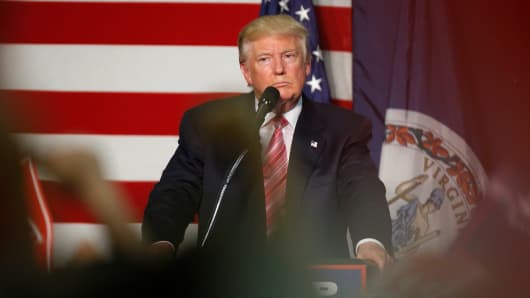Republican presidential nominee Donald Trump may be trailing in second place behind Hillary Clinton among voters in polls, but among the nation's economists he's fallen into third place, behind Libertarian Party nominee Gary Johnson.
Some 55 percent of those surveyed by the National Association for Business Economics said they thought Clinton would do the best job of managing the U.S. economy, behind Johnson with 15 percent and Trump with 14 percent.
And like many Americans, most of the group said they'll be glad once the election is over.
"More than three-fifths of respondents believe that uncertainty about the national election is holding back U.S. economic growth," said LaVaughn Henry, a NABE director who heads the survey committee.



